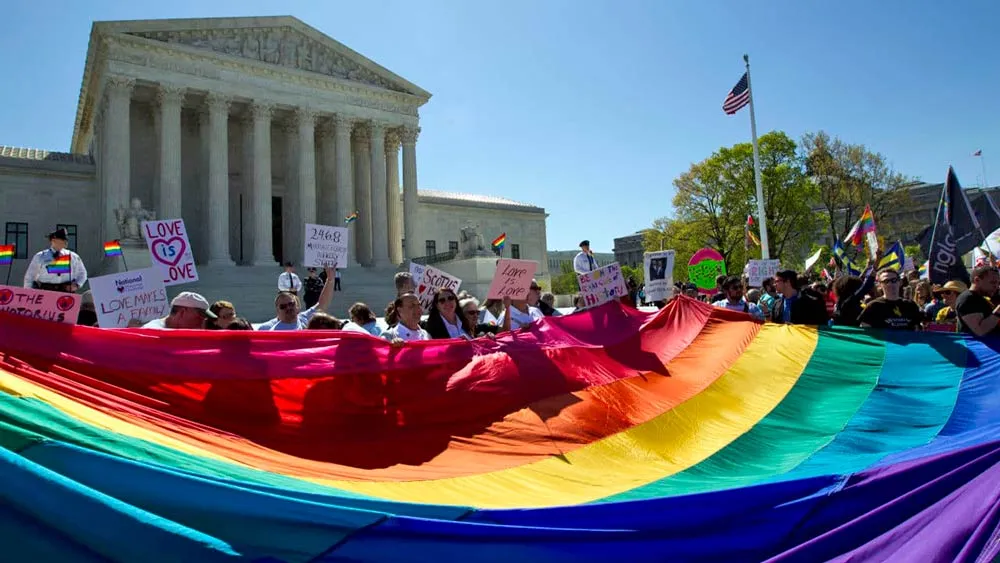November 11, 2011
Houstonians Overlook Parker's Sexual Orientation, Re-Elect Her to Second Term
Eric Miller READ TIME: 3 MIN.
Houston once again made history on Tuesday, Nov. 8, when it became the first major American city to re-elect an openly LGBT mayor. The margin by which Mayor Annise Parker was re-elected, however, was not as high as had previously been thought.
Speaking with EDGE on Monday, Nov. 7; Sue Davis, communications director for Parker's re-election campaign, said that she expected that the mayor would return to City Hall for a second term without a run-off. Davis estimated that Parker would have received as much as 65 percent of the vote. And while Parker won without a run-off, she scraped by the margin needed to avoid one with 51 percent of the vote.
"Mayor Parker was running against five opponents plus a bad economy," said Davis in a follow-up email after the election. "She had to make some very tough decisions to balance two budgets without a tax hike or an increase in debt and without laying off a single police officer or firefighter."
While Parker is undoubtedly aware of her place in history as the first LGBT mayor of a major American city, her campaign is careful to position her as the mayor who happens to be a lesbian rather than the city's lesbian mayor. Her platform is also absent of major LGBT-related initiatives.
"Annise Parker did not run to be the gay mayor of Houston, she ran to be the mayor of Houston and that's how she's handled the office since then," Davis told EDGE before the election. "One of the candidates had run against her sexual orientation, but didn't get any traction. There are always people who will not support her because of that, but it continues to be a smaller portion of the population."
Bryan Hlavinka, who serves on the Victory Fund's national Board of Directors, said Parker's sexual orientation and existing homophobia means that she has to perform even better than a straight official does.
"She has to do a better job than a straight candidate has to do because she has to make up for that hate," he said. "There are emails going out today that say we need to vote her out because she's a lesbian. Her campaign has broken those boundaries that say you're not automatically disqualified from being mayor because of who you are."
Davis and Hlavinka agree that Parker's sexual orientation has not been an issue for most Houston voters, now or in the past when she served on the City Council or as city controller. And despite not putting LGBT-specific items on her agenda, the local and national LGBT community remains supportive.
"She has to be careful that she's not 'promoting the gay agenda,'" said Hlavinka. "She did issue an order to allow for transgendered protections on the city level that did not exist before. Just being elected sends a message to a whole generation of people that you can do it, there's no barricade."
Parker did appoint Texas' first openly transgender judge, Phyllis Randolph Frye. She also supports a referendum that would allow domestic partner benefits to city employees.
Parker is not the only LGBT official who won at the polls on Nov. 8.
Mike Laster won his bid to represent District J in Southwest Houston on the City Council, becoming the first LGBT man to be elected in the city. Transgender candidate Jennifer Pool lost her bid to gain an at-large position on the City Council. She faced nine opponents.
Fifty-three of the 75 candidates that the Victory Fund endorsed nationally won. Hlavinka said he would like to see Houston adopt a non-discrimination clause, but he added that this measure would need to come from Houstonians and the City Council and not Parker.
"She'll be vulnerable if she pushes the 'gay agenda,'" he said. "The more people we get into office the better. Each victory is another notch toward equality."
Eric Miller is a freelance writer and public relations professional based in Dallas. Eric is also publisher of www.newcolonist.com and co-creator of www.calendarofantiques.com. Eric has a Graduate Certificate in Public Relations from NYU, a Masters in Urban Studies from the University of Akron and is author of a chapter on Ayn Rand's life in New York in the book Literary Trips: Following in the Footsteps of Fame. He lives with his partner and four cats. Follow Eric on twitter @ericwmiller.






